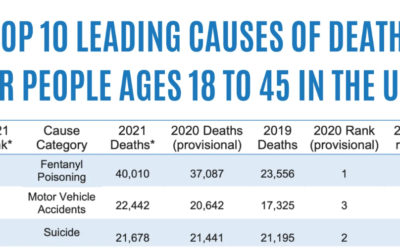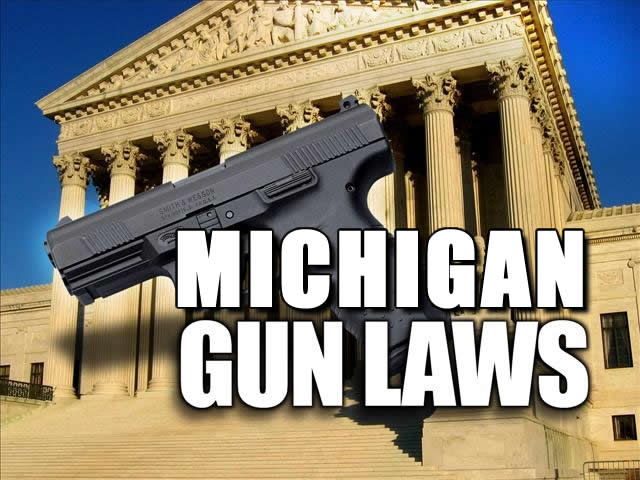Illegal Gun Ownership in Michigan: Insights and Statistics
The issue of illegal gun ownership in Michigan is a complex one, influenced by various factors ranging from criminal activity to loopholes in regulatory measures.
Understanding who owns illegal guns is crucial for developing targeted interventions and addressing the root causes of firearms-related crime. Let’s explore the demographics and statistics surrounding illegal gun ownership in Michigan.
Demographic Insights
- Criminal Element: A significant proportion of illegal guns in Michigan are owned by individuals with criminal backgrounds. This includes convicted felons, individuals with restraining orders, and those involved in illicit activities such as drug trafficking and gang violence.
- Youth Involvement: Youth involvement in illegal gun possession is a concerning trend in Michigan. According to data from law enforcement agencies, a notable number of illegal firearms are seized from young individuals involved in street crime and gang activity.
- Trafficking Networks: Illegal firearms often flow through sophisticated trafficking networks, involving individuals with connections to criminal organizations and underground markets. These networks facilitate the movement of guns across state lines, making it challenging for law enforcement to track and intercept illegal weapons.
Statistical Overview
- ATF Tracing Data: Data from the Bureau of Alcohol, Tobacco, Firearms and Explosives (ATF) provides insights into the origins of illegal guns recovered by law enforcement agencies in Michigan. From 2016 to 2020, ATF reports indicate that a significant percentage of traced firearms were obtained through illegal channels, including straw purchases, thefts, and unregulated sales.
- Crime Gun Analysis: Crime gun analysis conducted by law enforcement agencies offers valuable insights into the types of firearms used in criminal activities. In Michigan, handguns are the most commonly recovered illegal firearms, followed by rifles and shotguns. This underscores the prevalence of illegal handguns in urban areas, where they are often used in acts of violence and intimidation.
- Geographical Patterns: Geographical analysis of illegal gun ownership in Michigan reveals regional disparities in firearms-related crime. Urban areas such as Detroit and Flint experience higher rates of illegal gun possession and firearms-related violence compared to rural areas. Factors such as poverty, unemployment, and lack of access to legal firearms contribute to these disparities.
Addressing the Issue
Combatting illegal gun ownership in Michigan requires a multifaceted approach that addresses the underlying factors driving firearms-related crime. This includes:
- Strengthening enforcement efforts to disrupt trafficking networks and dismantle illegal firearms markets.
- Implementing targeted interventions aimed at at-risk youth to prevent their involvement in gun-related criminal activities.
- Enhancing regulatory measures to close loopholes and prevent the diversion of legal firearms into the illegal market.
Understanding the demographics and statistics surrounding illegal gun ownership in Michigan is essential for developing effective strategies to combat firearms-related crime. By targeting enforcement efforts, addressing root causes, and fostering collaboration between law enforcement agencies and community stakeholders, Michigan can work towards reducing the prevalence of illegal guns and creating safer communities for all residents.
Understanding Michigan Law
Michigan’s laws regarding firearm ownership and possession are outlined in the Michigan Compiled Laws (MCL). Specifically, MCL 28.422 details the criteria for obtaining a Concealed Pistol License (CPL) and outlines the procedures for individuals seeking to restore their firearms rights.
MCL Section 750.224 is another location to find laws about weapons in Michigan.
MCL – Section 750.224a has more.
Go through each section by using the next arrow on the website.
You may want to come back and take a look at the laws in more detail as this article does not dive too deep into the laws. There’s a lot.
Real Questions from Real Calls
Question: What if I get caught with an unregistered gun in Michigan?
Answer: Say as little as possible and call a lawyer ASAP.
Real Questions from Real Calls
Question: What about my Long Gun in Michigan?
Answer: Universal background checks
Previous state law only required background checks for pistol sales and effectively didn’t mandate such criminal background checks or registration for other types of firearms, such as rifles.
A prohibition on purchasing a firearm without a license in the state, as well as a new mandate for universal background checks for all firearm sales, go into effect in Feb 2024. This will not impact individuals who have already purchased long guns without such requirements. More you need to know about the new laws.

Steps to Restore Second Amendment Rights
1. Expungement of Convictions
For individuals with criminal convictions, pursuing expungement may be the first step towards restoring their firearms rights. Michigan’s recent expungement laws allow for the sealing of certain criminal records, enabling individuals to regain their firearms privileges under specific circumstances. Refer to MCL 780.621 for more information on the expungement process.
2. Petition for Restoration
Those who have lost their firearms rights due to criminal convictions or mental health adjudications can petition the court for restoration. This involves filing a petition with the circuit court in the county of residence. The court will review the individual’s case, considering factors such as rehabilitation, conduct since the conviction, and any mitigating circumstances. Consult MCL 28.425 for detailed information on the restoration process.
3. Compliance with Federal Requirements
In addition to state laws, individuals seeking to restore their firearms rights must also comply with federal regulations. This may include completing background checks and adhering to any federal restrictions on firearms ownership.
Seeking Legal Counsel
Navigating the process of restoring Second Amendment rights can be complex, especially considering the legal intricacies involved. As such, seeking guidance from a qualified attorney specializing in firearms law is highly recommended.
An attorney can provide invaluable assistance, ensuring that individuals understand their rights and obligations under both state and federal law.
Real Questions from Real Calls
Question: The application from the ATF Form 4473 asks if I use any illegal drugs. I have my medical marijuana card and it’s legal in Michigan right? So can I get a gun?
Answer: Unless you are the president’s son if you answered “No” on the form where it asks if you use illegal drugs you would be lying and your gun rights probably taken away and possibl;y charged with a crime.
Marihuana is still illegal federally and still in the public health code and listed as a controlled substance 1 in Michigan.
As it states on the ATF Form 4473 Part 1
Q: Are you an unlawful user of, or addicted to, marijuana or any depressant, stimulant, narcotic drug, or any other controlled substance?
Warning: The use or possession of marijuana remains unlawful under Federal law regardless of whether it has been legalized or decriminalized for medicinal or recreational purposes in the state where you reside.
If you got this far here are some news articles
Here’s what you need to know about Michigan’s gun laws that take effect Tuesday (Feb 13, 2024)
Michigan: House Passes Long Gun Registration & Permit Mandate (March 10, 2023)
With a Stroke of the Pen, Biden ATF Criminalizes Tens of Thousands of Private Firearm Sellers (April 12, 2024)
Related Articles
No Results Found
The page you requested could not be found. Try refining your search, or use the navigation above to locate the post.
More Posts
Marijuana retailer drops lawsuit against City of Ypsilanti
YPSILANTI, MI - Less than four months after a company sued Ypsilanti over the city’s marijuana business licensing process, the company has dropped the legal claims. AMA...
Fentanyl overdose becomes leading cause of death for adults age 18 to 45
Fentanyl overdose is now the leading cause of death for US adults ages 18 to 45, according to numbers from the disgraced CDC. Official overdose numbers for 2020 were...
Numbers to Know for Hemp Grower Requirements
Michigan 2022 The Industrial Hemp Growers Act contains important information regarding registration fees,application deadlines, and notification requirements. This...
Marijuana would be removed from drug schedule under new bill
Marijuana, although being legal recreationally in Michigan, remains categorized a schedule 1 drug with some opiates, ecstasy LSD and heroin. Marijuana still remains...
How Can I Restore My Rights To Own and Possess Firearms
Problem – You have a Felony Conviction Once convicted of a felony under Michigan and Federal law an individual loses their right to own or possess a firearm....
Ex-Macomb County Prosecutor Eric Smith sentenced
MACOMB COUNTY, Mich. - Former Macomb County Prosecutor Eric Smith was given a maximum prison sentence of 21 months and was fined $20,000 following his...
Whitmer rolls out new name for Michigan Marijuana agency
Three years after it was formed, the Michigan Marijuana Regulatory Agency is getting a new name. The agency will be renamed the Cannabis Regulatory Agency and...
INTRODUCED HOUSE BILL 5321
"General sales tax act," (MCL 205.51 to 205.78) by adding section 4ii. THE PEOPLE OF THE STATE OF MICHIGAN ENACT: Sec. 4ii. (1) The sale of marihuana from a registered...
Funding Limits on Federal Prosecutions of State-Legal Medical Marijuana
February 4, 2022 KOMORN LAW PLLC - Cannabis Law and Business Focused (Past - Present - Future) - Find Out Why by Visiting KomornLaw.com Federal law generally prohibits...
In California pot market, a hazy line between legal and not
In the five years since California voters approved a broad legal marketplace for marijuana, thousands of greenhouses have sprouted across the state. But these, under...












